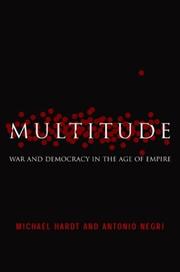| Listing 1 - 10 of 51 | << page >> |
Sort by
|
Book
ISBN: 3506707701 9783506707703 Year: 1981 Volume: 20 Publisher: München: Schöningh,
Abstract | Keywords | Export | Availability | Bookmark
 Loading...
Loading...Choose an application
- Reference Manager
- EndNote
- RefWorks (Direct export to RefWorks)
Popes --- Petrine office --- Papacy and Christian union --- Primacy --- History of doctrines --- 261.8*56 --- #GROL:SEMI-261.8 --- #GROL:SEMI-262.13 --- Oecumenische theologie: apostolische successie; paus --- 261.8*56 Oecumenische theologie: apostolische successie; paus --- Holy See --- See, Holy --- Papacy --- Petrine function --- Petrine ministry --- Petrine primacy --- Church --- Christian union and the papacy --- Christian union --- Apostolicity --- Popes - Primacy - History of doctrines - 20th century --- Petrine office - History of doctrines - 20th century --- Papacy and Christian union - History of doctrines - 20th century
Book
ISBN: 0197674666 0197674682 0197674674 Year: 2023 Publisher: New York, NY : Oxford University Press,
Abstract | Keywords | Export | Availability | Bookmark
 Loading...
Loading...Choose an application
- Reference Manager
- EndNote
- RefWorks (Direct export to RefWorks)
In 'The Subversive Seventies', Michael Hardt sets out to show that popular understandings of the political movements of the seventies - often seen as fractious, violent, and largely unsuccessful - are not just inaccurate, but foreclose valuable lessons for the political struggles of today. Looking at a wide range of movements around the globe during the 1970s, from the United States, to Guinea Bissau, South Korea, Chile, Turkey, and Italy, Hardt argues that the movements of the 1970s identified and attempted to resolve the political problems that still face contemporary radical political thought and action.
Protest movements --- Social movements --- Neoliberalism --- Nineteen seventies. --- History --- 1970s --- 70s (Twentieth century decade) --- Seventies (Twentieth century decade) --- Twentieth century --- Neo-liberalism --- Liberalism --- Movements, Social --- Social history --- Social psychology --- Society. --- Sociology & anthropology.
Book
Year: 1981 Publisher: Paderborn Schöningh
Abstract | Keywords | Export | Availability | Bookmark
 Loading...
Loading...Choose an application
- Reference Manager
- EndNote
- RefWorks (Direct export to RefWorks)
Book
ISBN: 9780197674659 Year: 2023 Publisher: New York, NY : Oxford University Press,
Abstract | Keywords | Export | Availability | Bookmark
 Loading...
Loading...Choose an application
- Reference Manager
- EndNote
- RefWorks (Direct export to RefWorks)
"Progressive and revolutionary movements of the 70s, which took place across the globe, provide an inspiring and useful guide for contemporary radical political thought and action, even more than those of the 60s. The 60s were a crucial historical turning point and we can certainly learn from those movements, both the victorious and the vanquished, but, fundamentally, they marked the end of an era. The 1970s, in contrast, herald the beginning of our time. In response to the insurgencies of the 60s, new structures of power, many of which are now grouped under the name neoliberalism, were tested and institutionalized, and are essentially the same ones that rule over us today. The progressive and revolutionary struggles of the 70s, then, constituted an initial set of experiments for confronting our current conjuncture, a first test of the terrain. Feminist and gay liberation movements, worker and anticolonial struggles, antinuclear and antiracist projects, along with many others liberation efforts developed in the 70s offer us not only initial analyses of today's structures of economic and political domination, but also forms of critique and resistance most effective against them"--
Protest movements --- Social movements --- Neoliberalism --- Nineteen seventies. --- History --- Nineteen seventies

ISBN: 0816621608 Year: 1993 Publisher: Minneapolis (Minn.): University of Minnesota
Abstract | Keywords | Export | Availability | Bookmark
 Loading...
Loading...Choose an application
- Reference Manager
- EndNote
- RefWorks (Direct export to RefWorks)
Book
Year: 1939 Publisher: Berlin P. Franke
Abstract | Keywords | Export | Availability | Bookmark
 Loading...
Loading...Choose an application
- Reference Manager
- EndNote
- RefWorks (Direct export to RefWorks)
Book
ISBN: 1857281438 Year: 1993 Publisher: London UCL Press
Abstract | Keywords | Export | Availability | Bookmark
 Loading...
Loading...Choose an application
- Reference Manager
- EndNote
- RefWorks (Direct export to RefWorks)

ISBN: 9780674060289 9780674035119 0674035119 0674060288 Year: 2009 Publisher: Cambridge : Belknap Press of Harvard University Press,
Abstract | Keywords | Export | Availability | Bookmark
 Loading...
Loading...Choose an application
- Reference Manager
- EndNote
- RefWorks (Direct export to RefWorks)
When Empire appeared in 2000, it defined the political and economic challenges of the era of globalization and, thrillingly, found in them possibilities for new and more democratic forms of social organization. Now, with Commonwealth, Michael Hardt and Antonio Negri conclude the trilogy begun with Empire and continued in Multitude, proposing an ethics of freedom for living in our common world and articulating a possible constitution for our common wealth. Drawing on scenarios from around the globe and elucidating the themes that unite them, Hardt and Negri focus on the logic of institutions and the models of governance adequate to our understanding of a global commonwealth. They argue for the idea of the "common" to replace the opposition of private and public and the politics predicated on that opposition. Ultimately, they articulate the theoretical bases for what they call "governing the revolution." Though this book functions as an extension and a completion of a sustained line of Hardt and Negri's thought, it also stands alone and is entirely accessible to readers who are not familiar with the previous works. It is certain to appeal to, challenge, and enrich the thinking of anyone interested in questions of politics and globalization.
Social change --- Political philosophy. Social philosophy --- International organization. --- International cooperation. --- Globalization. --- Bien commun --- Organisations internationales --- Coopération internationale --- Mondialisation --- Philosophie --- International organization --- AA / International- internationaal --- International cooperation --- Globalization --- 327.0 --- 203 --- 170 --- 330.50 --- Global cities --- Globalisation --- Internationalization --- International relations --- Anti-globalization movement --- Cooperation, International --- Global governance --- Institutions, International --- Interdependence of nations --- International institutions --- World order --- Cooperation --- Federation, International --- International administration --- International federation --- Organization, International --- World federation --- World government --- World organization --- Congresses and conventions --- Peace --- Political science --- International agencies --- Security, International --- World politics --- Internationale politiek: algemeenheden. --- Sociografie. Algemene beschrijving van de gemeenschappen (Sociologie). --- Moraal en ethiek (algemeenheden). --- Economische en sociale stelsels: algemeenheden. --- POLITICAL SCIENCE --- Law, Politics & Government --- International Relations --- Moraal en ethiek (algemeenheden) --- Sociografie. Algemene beschrijving van de gemeenschappen (Sociologie) --- Internationale politiek: algemeenheden --- Economische en sociale stelsels: algemeenheden --- Organisations internationales. --- Coopération internationale. --- Mondialisation. --- Philosophie. --- Coopération internationale. --- Coopération internationale

ISBN: 0816625530 Year: 1996 Volume: 7 Publisher: Minneapolis ; London University of Minnesota Press
Abstract | Keywords | Export | Availability | Bookmark
 Loading...
Loading...Choose an application
- Reference Manager
- EndNote
- RefWorks (Direct export to RefWorks)
Italy --- Politics and government --- 1945 --- -Radicalism

ISBN: 1594200246 9780143035596 0141014873 9780141014876 0143035592 Year: 2004 Publisher: New York (N.Y.) : Penguin press,
Abstract | Keywords | Export | Availability | Bookmark
 Loading...
Loading...Choose an application
- Reference Manager
- EndNote
- RefWorks (Direct export to RefWorks)
The world-renowned authors of the international best-seller 'Empire' follow with an astonishing, politically energizing manifesto that argues that some of the most troubling aspects of the new world order contain the seeds of radical global social transformation With 'Empire', Michael Hardt and Antonio Negri established themselves as visionary theoreticians of the new global order. They presented a profound new vision of a world in which the old system of nation-states has surrendered much of its hegemony to a supranational, multidimensional network of power they call empire. Empire penetrates into more aspects of life over more of the world than any traditional empire before it, and it cannot be beheaded for it is multinoded. The network is the empire and the empire is the network. Now, in 'Multitude', Hardt and Negri offer up an inspiring vision of how the people of the world can use the structures of empire against empire itself. With the enormous intellectual depth, historical perspective, and positive, enabling spirit that are the authors' hallmark, 'Multitude' lays down in three parts a powerful case for hope. Part I, "War," examines the darkest aspects of empire. We are at a crisis point in human affairs, when the new circuits of power have grown beyond the ability of existing circuits of political sovereignty and social justice to contain them. A mind-set of perpetual war predominates in which all wars are police actions and all police actions are wars-counterinsurgencies against the enemies of empire. In Part II, the book's central section, "Multitude," they explain how empire, by colonizing and interconnecting more areas of human life ever more deeply, has actually created the possibility for democracy of a sort never before seen. Brought together in a multinoded commons of resistance, different groups combine and recombine in fluid new matrices of resistance. No longer the silent, oppressed "masses," they form a multitude. Hardt and Negri argue tha
Democracy. --- Internationalism. --- Globalization. --- International relations. --- War. --- Imperialism. --- democratie --- globalisering --- imperialisme --- politiek --- 331.35 --- AA / International- internationaal --- 327.0 --- 327.8 --- 321.4 --- 203 --- Internationale politiek: algemeenheden. --- Oorlog. --- Democratie. --- Sociografie. Algemene beschrijving van de gemeenschappen (Sociologie). --- Democracy --- Globalization --- Imperialism --- Internationalism --- International relations --- War --- Armed conflict (War) --- Conflict, Armed (War) --- Fighting --- Hostilities --- Wars --- Military art and science --- Peace --- Coexistence --- Foreign affairs --- Foreign policy --- Foreign relations --- Global governance --- Interdependence of nations --- International affairs --- Peaceful coexistence --- World order --- National security --- Sovereignty --- World politics --- Intellectual cooperation --- International cooperation --- Cosmopolitanism --- International education --- Nationalism --- Colonialism --- Empires --- Expansion (United States politics) --- Neocolonialism --- Political science --- Anti-imperialist movements --- Caesarism --- Chauvinism and jingoism --- Militarism --- Global cities --- Globalisation --- Internationalization --- Anti-globalization movement --- Self-government --- Equality --- Representative government and representation --- Republics --- Impérialisme --- Démocratie --- Guerre --- Relations internationales --- Imperialismus. --- Globalisierung. --- Démocratie --- Internationalisme --- Mondialisation --- Impérialisme --- Démocratie. --- Impérialisme. --- Guerre. --- Relations internationales. --- Internationale politiek: algemeenheden --- Oorlog --- Democratie --- Sociografie. Algemene beschrijving van de gemeenschappen (Sociologie)
| Listing 1 - 10 of 51 | << page >> |
Sort by
|

 Search
Search Feedback
Feedback About UniCat
About UniCat  Help
Help News
News